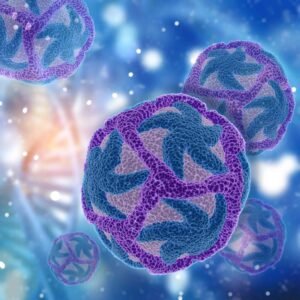Understanding Recurrent IVF Failure
In vitro fertilization (IVF) has provided hope to countless couples facing infertility. However, when multiple IVF cycles fail despite transferring good-quality embryos, it becomes a source of immense frustration and emotional distress. This phenomenon, known as Recurrent IVF Failure, is typically defined as the failure to achieve a clinical pregnancy after transferring at least four good-quality embryos in a minimum of three fresh or frozen IVF cycles in a woman under the age of 40.
While factors like embryo quality, uterine abnormalities, and hormonal imbalances are commonly investigated, emerging research suggests that hidden immunological issues might play a pivotal role in these unexplained failures.

The Immune System’s Role in Fertility
The immune system is designed to protect the body from foreign invaders. However, during pregnancy, it must adapt to tolerate the fetus, which is genetically distinct from the mother. This delicate balance is crucial for successful implantation and pregnancy progression.
In some cases, the immune system may misinterpret the embryo as a threat, leading to an immune response that hinders implantation or causes early miscarriage. This immune intolerance can be a hidden factor behind recurrent IVF failure.
Hidden Immunological Factors Contributing to Recurrent IVF Failure
1. Natural Killer (NK) Cells
NK cells are a type of white blood cell that plays a role in the body’s defense mechanisms. In the uterus, a specific subset called uterine NK (uNK) cells is involved in remodeling the uterine lining to support pregnancy. However, an overactivation or increased number of these cells can lead to an aggressive immune response against the embryo, preventing implantation.

2. Antiphospholipid Antibodies (APA)
Antiphospholipid syndrome is an autoimmune disorder characterized by the presence of antibodies that attack phospholipids, essential components of cell membranes. These antibodies can cause blood clots and interfere with the implantation process, leading to recurrent pregnancy losses and IVF failures.
3. Antinuclear Antibodies (ANA)
ANAs target the nucleus of cells and are commonly associated with autoimmune diseases. Their presence can indicate an underlying immune dysfunction that may affect the uterine environment, making it hostile to embryo implantation.
4. Human Leukocyte Antigen (HLA) Compatibility
HLA molecules are involved in the immune system’s ability to distinguish self from non-self. Certain combinations of maternal and paternal HLA genes can lead to immune recognition issues, where the mother’s immune system may attack the embryo, perceiving it as foreign.
5. Cytokine Imbalance
Cytokines are signaling proteins that mediate and regulate immunity and inflammation. An imbalance between pro-inflammatory and anti-inflammatory cytokines can disrupt the implantation process. For instance, elevated levels of tumor necrosis factor-alpha (TNF-α) have been associated with implantation failures.
Lifestyle Changes to Support Immune Health and IVF Success
Making certain lifestyle adjustments can help regulate immune function, reduce inflammation, and create a more receptive environment for embryo implantation. Here are some key lifestyle changes to consider:
- Manage Stress Effectively
Practice yoga, meditation, or deep-breathing exercises. Consider mindfulness-based stress reduction (MBSR) or fertility counseling to reduce cortisol levels and support emotional balance. - Adopt an Anti-Inflammatory Diet
Focus on whole foods like leafy greens, berries, nuts, seeds, legumes, and lean proteins. Reduce intake of processed foods, trans fats, refined sugars, and excessive salt. - Include Fertility-Friendly Nutrients
Incorporate foods rich in:a. Omega-3 fatty acids (e.g., flaxseed, chia seeds, salmon)
b. Antioxidants (e.g., berries, turmeric, green tea)
c. Vitamin D, folate, and zinc (essential for immune and reproductive health)

4. Maintain a Healthy Weight
Aim for a BMI within the healthy range (18.5–24.9), as both underweight and overweight conditions can impair hormonal and immune balance.
5. Exercise Moderately
Engage in regular low-impact activities like walking, swimming, or light strength training. Avoid high-intensity workouts that can disrupt ovulation or increase inflammatory markers.
6. Prioritize Quality Sleep
Get 7–9 hours of restorative sleep per night. Poor sleep can weaken the immune system and alter hormone levels critical for conception.
7. Avoid Smoking and Limit Alcohol
Both substances can negatively impact egg quality, sperm health, and immune regulation.
8. Limit Caffeine Intake
Keep caffeine consumption under 200 mg per day (about one 12 oz cup of coffee), as excessive intake may interfere with conception and hormonal balance..
Diagnostic Approaches for Immunological Factors
Identifying immunological causes behind recurrent IVF failure involves specialized testing:
- NK Cell Activity Tests: Assess the number and activity level of NK cells in the blood or uterine lining.
- Antiphospholipid Antibody Testing: Detects the presence of APA in the blood.
- Antinuclear Antibody Testing: Screens for ANAs that may indicate autoimmune conditions.
- HLA Compatibility Testing: Evaluates the compatibility between maternal and paternal HLA genes.
- Cytokine Profiling: Measures levels of various cytokines to identify imbalances.
Therapeutic Interventions
Once immunological factors are identified, several treatment strategies may be considered:
- Immunosuppressive Therapy: Medications like corticosteroids can reduce immune system activity, potentially improving implantation rates.
- Intravenous Immunoglobulin (IVIG): IVIG therapy can modulate the immune response and has shown promise in some cases of recurrent IVF failure.
- Low Molecular Weight Heparin (LMWH): Used to prevent blood clots in patients with antiphospholipid syndrome, enhancing uterine blood flow.
- Intralipid Infusions: These fat emulsions may suppress NK cell activity, creating a more favorable environment for embryo implantation.
- Lifestyle Modifications: Addressing stress, diet, and overall health can also positively influence immune function.

Conclusion
Recurrent IVF failure is a multifaceted issue, and hidden immunological problems may be a significant contributing factor. Understanding and addressing these immune-related issues can open new avenues for treatment, offering hope to couples facing repeated IVF disappointments. If you’ve experienced multiple IVF failures without a clear explanation, consulting with a reproductive immunologist may provide valuable insights and potential solutions.


